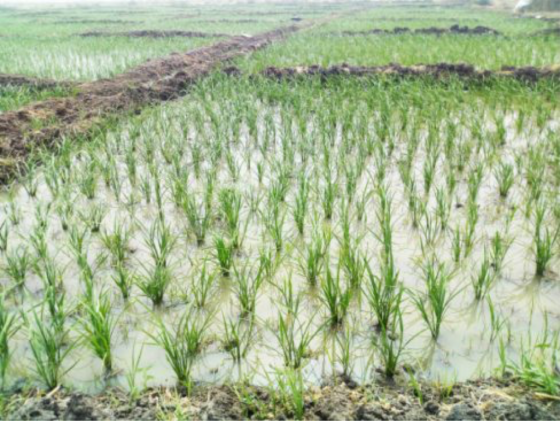Historical Liberian Churches Unveiled Rice Project

The Lutheran Church in Liberia in partnership with other churches including the Episcopal, Methodist, and the Baptist has launched a rice farming project aimed at reducing the high importation of rice.
The leaders of those Churches on Wednesday, September 22, 2021, gathered at the Lutheran compound in Sinkor and signed a memorandum of understanding (MoU) intended to guide them in the implementation of the project.
Liberia spends nearly US$ 200 million annually to import rice from China, India, the United States, and a few other countries. There are challenges that come with the importation of rice, among them being delayed, port clearance. Considering these constraints and realities, the Churches said ‘enough is enough and that they are ready to invest in food production for the nation of about five million people.
The initiative, coined and styled, “Liberian Initiative for Feeding Everyone (LIFE-Liberia),” received its endorsement from these four biggest Churches in the country, and witnesses to the signing ceremony expressed hope that a new day has been set in motion to redeem Liberia from the snare of hunger.
Dr. Jensen Sayenkulo, Bishop of the Lutheran Church and founder of the Liberian Initiative for Feeding Everyone (LIFE-Liberia), said Churches were united over hundred years ago and their unity led to the construction of Phebe Hospital in Gbarnga, Bong County, and the same Churches have the willpower to change the food importation narrative.
“Now is time to feed the nation. We can feed ourselves. We have rich soil, abundant rainfall, and enough sunshine,” Bishop Sayenkulo added: “We are too old to continue letting other people decide what we eat, how we eat it, and when we eat it. This is all too shameful in this age and era.”
At least sixty-five percent of the rice consumed in Liberia comes from abroad and people have gotten adjusted to it, making locally produced rice not sought after. The Lutheran Bishop said he was happy that his colleagues had joined hands with him to make the needed difference in rice production.
“We have traveled across the country and done our assessment. We have agreed to begin this project in Nimba and as time goes, we will expand the project to the rest of the country gradually,” he noted. He said he and his colleagues mean business and they will do their best to see the dream come through.
Bishop Sayenkulo concluded that LIFE-Liberia has been shared with the government and it is expected that it will create the enabling environment for the success of the project. Junice Gono, head Pastor of St. Peter’s Lutheran Church said the Church has spiritually fed the nation for many years, and now it is time for physical feeding.
“We are glad that our sister Churches have joined hands with us to see this dream come through. We can make it through unity and I am confident we will hit the ground running,” Rev. Gono said.
Bishop Dr. Samuel Reeves of the Providence Baptist Church also added that now is the time for those in the rice business to redirect their thought of maximizing double profit from rice because of the insufficiency of the commodity in the country.
“Let them be aware that we are here to put them out of business if only they think the poor people should continue to pay more than what they should,” Reeves warned. “We support this project two hundred percent because we are two hundred years old now. Jesus fed five thousand people with a loaf of bread. We will feed our people with less expensive bags full of rice."
Rev. Fr. Wozeyan Bazzie, Chairman of the standing committee of the Episcopal Church of Liberia weighed in by saying “Liberia’s continuous importation of pepper, groundnuts, and many vegetables is sad.”
“It’s enough that we take action. With the coming of this project, there will be employment for many Liberians. There will be challenges but let us not be deterred. We will win together,” Rev. Bazzie said.
The United Methodist Church, like the rest of the churches, has also committed itself to support the initiative for mass rice production in the country.
